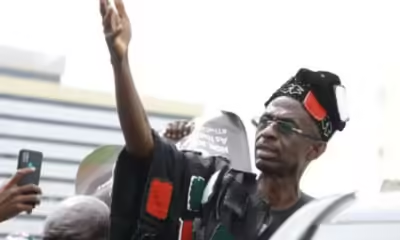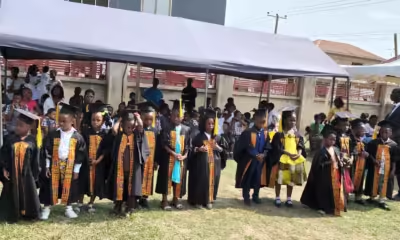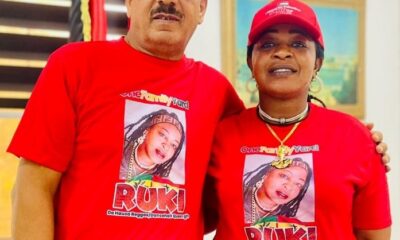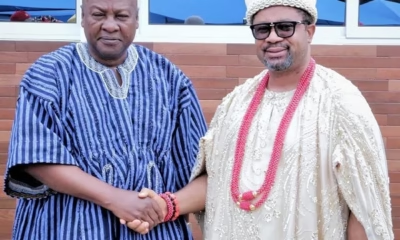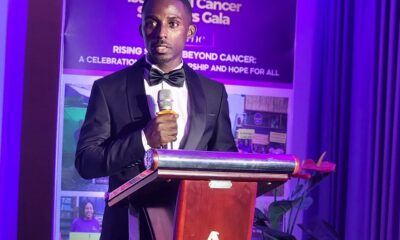Business
Ghana, Brazil trade volume hits $763m in 2024 —Brazil Ambassador to Ghana
Published
3 months agoon
Trade between Brazil and Ghana reached $763 million in 2024, with a surplus of $90 million to Ghana, the Ambassador of Brazil to Ghana, Mrs Mariana Madeira, has announced.
She said Brazil exported food items such as sugar, animal products and machines, whereas Ghana exported oil, minerals, precious metals and cocoa paste to Brazil.
Mrs Madeira was speaking at the fourth Brazil-Ghana Business Forum in Accra on Wednesday, organised by Brazilian Ministry of Foreign Affairs and the Brazilian Trade and Investment Promotion Agency (ApexBrasil).
The Ambassador explained that Ghana offered investment opportunities in several sectors, including agribusiness, manufacturing, healthcare, textiles, education and construction.
Mrs Madeira also noted that agribusiness shows great potential for Ghana, one that could turn the fortunes of the economy around.
Furthermore, the Brazil Ambassador to Ghana said Ghana’s abundant resources, such as cocoa and tropical fruits, combined with Brazil’s expertise in processing and marketing could pave the way for creation of products for global markets.
In the area of construction, Mrs Madeira indicated that Brazil’s expertise and Ghana’s local workforce and availability of materials could be integrated to address Ghana’s growing demand for housing and urban infrastructure.
She pointed out that Brazil’s knowhow in health and energy could also be a perfect match for Ghana’s needs in line with the developmental goals set by the current government
- Prof. Samuel Kobina Annim addressing the media Photo: Seth Osabukle
- BY MALIK SULLEMANA
You may like
Business
Afreximbank sees opportunities in cotton sector …as it hosts partnership’s steering committee
Published
24 hours agoon
May 8, 2025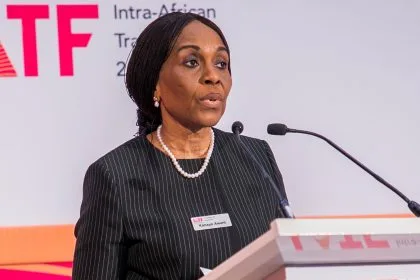
African Export-Import Bank (Afreximbank) has hosted a two-day meeting of the Steering Committee of the Partenariat pour le Coton (PPC), a global platform established to support transformation and value addition in the cotton-textile-garment (CTG) sector in developing countries.
With an initial focus on the C4+ countries (Benin, Burkina Faso, Chad, Mali, and Côte d’Ivoire), PPC aims to drive sustainable transformation and value addition in the CTG sector by enhancing economic returns, creating employment opportunities, and promoting economic, social and environmental sustainability.
Delivering the opening remarks at the meeting, held at Afreximbank Headquarters in Cairo Mrs Kanayo Awani, Executive Vice President for Intra-African Trade and Export Development at Afreximbank, noted that development of the cotton sector presents significant opportunities to enhance economic growth across Africa.
The sector it said contributes between 45 and 60 per cent of GDP and foreign exchange earnings in some countries.
However, she highlighted a recent study by the Steering Committee which revealed that textile and garment manufacturing sector in some C4+ countries remained at a nascent stage.
“Therefore, to upgrade and integrate into the global cotton sector value chain, we must address a range of issues, including low yields and limited processing capacity, climate change and variability, market fluctuations, global cotton prices, weak infrastructure and inadequate access to modern technology,” Mrs Awani said.
She emphasised that, as a member of the C4+ initiative, Afreximbank was committed to supporting African countries to move up the cotton value chain – transforming raw cotton into textiles and clothing.
Working with strategic partners, Afreximbank aims to help establish modern textile and garment industries in C4+ countries and across the continent to realise the development aspirations of the African Union’s Agenda 2063 and the United Nations Sustainable Development Goals.
Mrs Awani noted that the Steering Committee’s deliberations were centred on mobilising capital and investment to transform the African cotton sector.
She highlighted several financial and non-financial instruments that Afreximbank could deploy to support this goal, including project preparation funding, tailored financing and advisory solutions, debt and equity financing, export advisory services, SME support, insurance solutions, digital platforms to improve market access and compliance, and trade facilitation and investment promotion support.
“Through our active participation in the Partenariat pour le Coton, we reaffirm our commitment to supporting Africa’s drive for sustainable industrialisation and local value addition. By working alongside partners, we are helping unlock critical investments, strengthening technical capacity, and promoting sustainable practices across the cotton sector,” Mrs Awani said.
The outcomes of this Steering Committee meeting represents an important step towards realising the C4+ countries’ vision of a globally competitive cotton-textile-garment industry.
Afreximbank remains committed to championing initiatives that create jobs, boost trade and drive inclusive economic transformation,” Mrs Awani informed participants during the meeting.
Emphasising the importance of the outcome in his opening remarks, Mr. Jean-Marie Paugam, Deputy Director-General of World Trade Organisation (WTO), and Chairperson of the steering committee said ‘I hope that the discussions over these two days will yield concrete results for the industrialisation and local processing of cotton in partner countries. We will be able to report these results to WTO members at our next discussion on cotton, scheduled for the 14 of May at the WTO, which will address all issues facing the cotton industry in the C4 and other developing countries.”
The meeting, which brought together key stakeholders working to advance sustainable industrialisation across Africa’s CTG value chain, also included the formal signing of an amendment to the Trust Fund Agreement between Afreximbank and UNIDO.
This amendment reinforces Afreximbank’s US$ 80,230 grant to finance a baseline study critical to the development of the cotton-to-textile value chain under the PPC – delivered within a WTO-FIFA cooperation framework.
Business
AMC, TICON Africa seal landmark partnership deal with Labadi Beach Hotel
Published
1 week agoon
April 30, 2025The African Marketing Confederation (AMC) and the Technology Information Confederation Africa (TICON Africa) have sealed a landmark partnership with Labadi Beach Hotel
Under the deal the hotel will serve as the official host and venue sponsor for the highly anticipated AMC & TICON Africa Joint Conference, scheduled to take place from August 20-22, 2025 in Accra.
This strategic collaboration marks a significant milestone in the buildup to Africa’s most influential gathering of marketing, technology, and business professionals.
Following the signing of the venue partnership, the Managing Director of Labadi Beach Hotel, David Eduaful, emphasised the hotel’s commitment to offering an unmatched hospitality experience.
“Labadi Beach Hotel, the first 5-star hotel in Ghana, will ensure that delegates have the best of Ghanaian hospitality and a lifetime memorable experience,” he stated.
The Chartered Institute of Marketing, Ghana (CIMG) and the Institute of ICT Professionals Ghana (IIPGH), as the host professional bodies for AMC and TICON Africa respectively, will spearhead this fourth edition of the conference.
Expected to welcome over 500 delegates from 35+ countries, the conference will solidify Ghana’s reputation as a hub for innovation, digital transformation, and cross-industry partnerships.
Aligned with Africa’s Agenda 2063, this event seeks to accelerate the continent’s digital economy, strengthen business ecosystems, and drive financial inclusion, ensuring sustainable and inclusive growth.
The Vice President of AMC West Africa and current CEO of CIMG, Kwabena Agyekum, praised Labadi Beach Hotel for coming on board as the official venue sponsor, saying, “We are grateful to the management of Labadi Beach Hotel for accepting our proposal to be the venue sponsor of this prestigious gathering of marketing, technology, and other professionals across Africa.”
The 2025 conference will focus on fostering synergy between marketing and technology, ensuring Africa remains competitive in the global digital economy.
The President of TICON Africa, David Gowu, expressed confidence in Labadi Beach Hotel’s ability to deliver a world-class event experience.
“We are confident Labadi Beach Hotel and its conferencing facilities will offer the best experience for over 500 delegates from Africa and other continents that will converge here in August,” he said.
Business
Energy sector is Ghana’s biggest economic risk —Finance Minister
Published
2 weeks agoon
April 24, 2025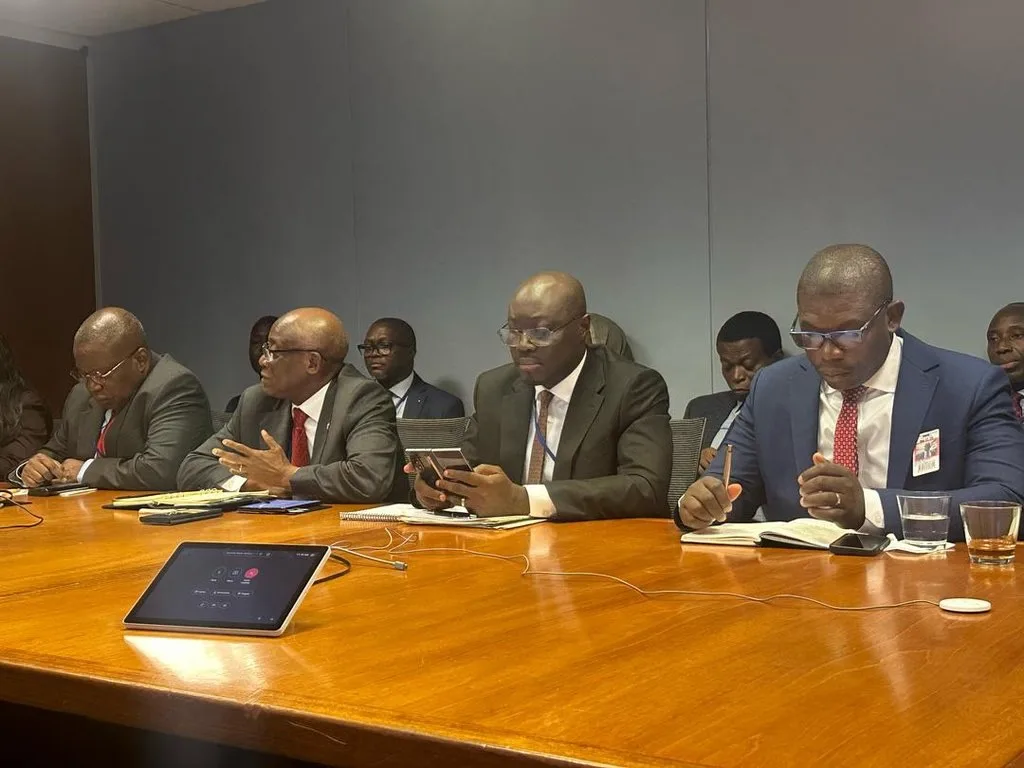
The Minister of Finance, Dr Cassiel Ato Forson has described Ghana’s energy sector as the biggest economic risk facing the country.
Speaking during a deep-dive session on the Ghana Energy Compact under Mission 300 at the ongoing World Bank/ International Monetary Fund Spring Meetings in Washington DC on Tuesday, he said the sector was burdened with a financial shortfall of approximately $2 billion.
This amount, he said surpassed the country’s domestic capital expenditure.
“This challenge goes beyond tariffs. The entire energy value chain requires urgent reform. Inefficiencies, especially in the distribution sector, are being passed onto the ordinary Ghanaian through high tariffs. ECG alone could cut the shortfall by half if it addresses these inefficiencies.” he said.
To bring stability and sustainability to the sector, he said cabinet had already approved private sector participation.
“We have submitted the legislative instrument to parliament to enable competitive procurement for power plants. These are critical steps toward bringing transparency and sustainability to the sector.” he said.
The Energy Compact, Dr Forson said had come at the right time as it had the potential to make a lasting impact.
“We are hopeful that the process will not be delayed. Time is of the essence. We must act swiftly to turn this around for the good of our economy and the well-being of our people.” he said.
At the heart of the Spring Meetings are meetings of the joint World Bank Group/IMF Development Committee and the IMF International Monetary
and Financial Committee, where progress on the work of the institutions is discussed.
Other featured events include regional briefings, press conferences, and fora focused on international development, issues of debt, economic recovery, and private sector mobilization.

National Peace Council pays courtesy call on Minister for Foreign Affairs

Jerry Afriyie Departs Camp to Rejoin Club in Spain

Italian delegation pays courtesy call on health minister to advance retooling project for 37 hospitals
Trending

 Politics8 months ago
Politics8 months agoVoter Register Discrepancies: NDC to stage nationwide protests against EC

 News9 months ago
News9 months agoArise Royals Montessori School Marks 2nd Graduation.

 Entertainment10 months ago
Entertainment10 months agoGhanaian musician Champions Gaza Peace with New Track

 News5 months ago
News5 months agoKing of Igbo Community in Ghana congratulates Mahama as President-elect of Ghana.

 More9 months ago
More9 months agoYoung people urged to develop their talents

 News10 months ago
News10 months agoCancer Support Network Foundation holds gala

 Entertainment10 months ago
Entertainment10 months agoSteps to receive an official GWR certificate – Details from mother of a Ghanaian record holder

 Tech10 months ago
Tech10 months agoWatch out for sharks: The bizarre history of internet outages





